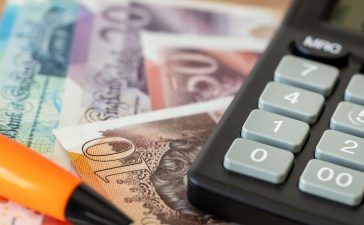Barristers should not crow online about court victories, the profession’s leader has warned amid renewed controversy over lawyers being identified with their clients.
Nick Vineall KC, chairman of the Bar Council, warned barristers against posting about their clients’ wins, stating that it risked compromising their independence or creating a public perception of bias or support for a cause.
Speaking at a service of evensong at Temple Church last night, Vineall also strongly backed the importance of the cab rank rule, which means that barristers must not decline instructions because they or sections of society disapprove of the client.
His comments prompted a silent protest by barrister and climate change activist Paul Powlesland, who held up a sign reading: ‘How many deaths does cab rank justify?’
Vineall’s speech comes as more than 100 lawyers have signed a declaration that they will refuse to act for companies supporting new fossil fuel projects or to prosecute peaceful climate change protesters.

Urging the bar to ‘ensure our house is in order’, Vineall told barristers to be ‘cautious about what we say about our client’s causes’. He said: ‘It is tempting, when one has acted for a client who has been successful in court, and when one approves of the client’s cause, to say how pleased one is,’ adding that examples appear almost daily on LinkedIn and on chambers’ website.
But, he warned that, through such posts, ‘barristers associate with their clients, and they do so at the cost of their independence, or at least at the cost of public perception of their independence’.
Another ‘distinct threat’ to the perception of the independence of the bar, said Vineall, comes from barristers who may not want to act for a client of whom they disapprove. Vineall said: ‘There are some barristers who believe that they should be permitted to decline instructions from corporate clients because they disapprove of the client’s corporate policies or practices, for instance on climate change.’ While he had ‘no doubt that these views are genuinely held and derive from good intentions’, Vineall argued that ‘independence and impartiality makes you a better advocate’.
Vineall stressed the importance of the principle that barristers should not be associated with the causes of their clients and that all parties in disputes – ‘both the goodies and the baddies’ – should be entitled to legal representation.
Powlesland is among more than 100 lawyers who have signed a declaration refusing to act for the fossil fuel industry, which he handed out before last night’s service. He called for a public debate on the ‘difficult and controversial’ issue.
He told the Gazette that it was ‘inappropriate’ and ‘outrageous’ for the chairman of the bar to suggest that barristers should be forced to work for the fossil fuel industry, during a service of worship in which his views could not be challenged.










